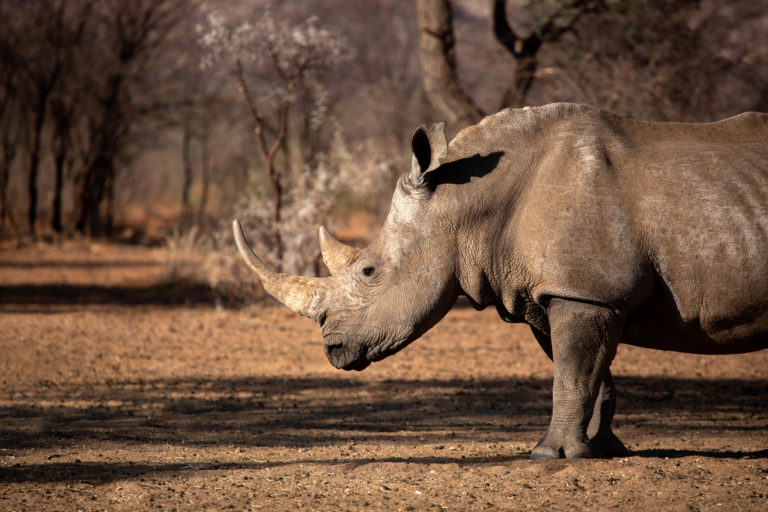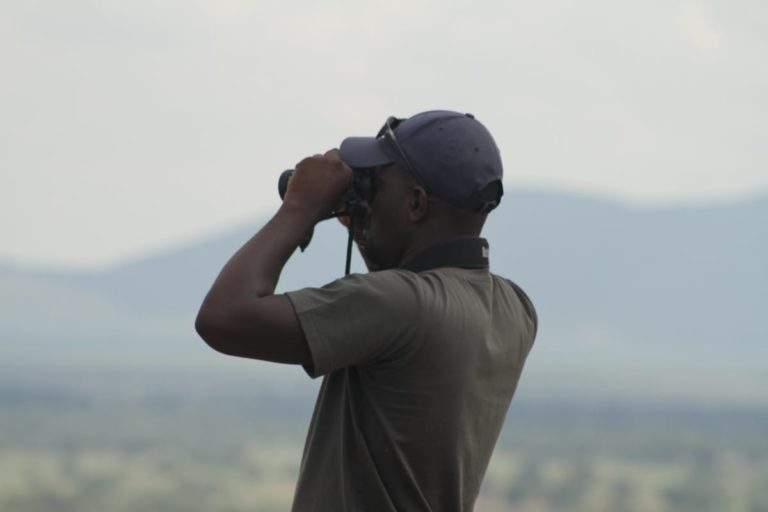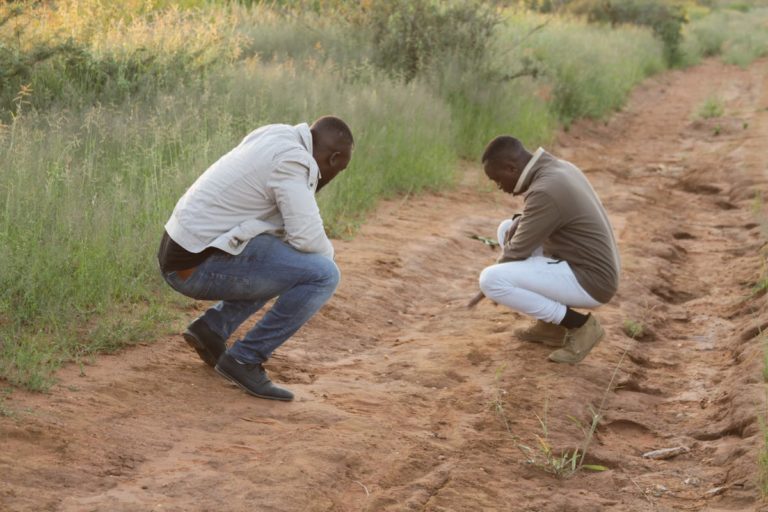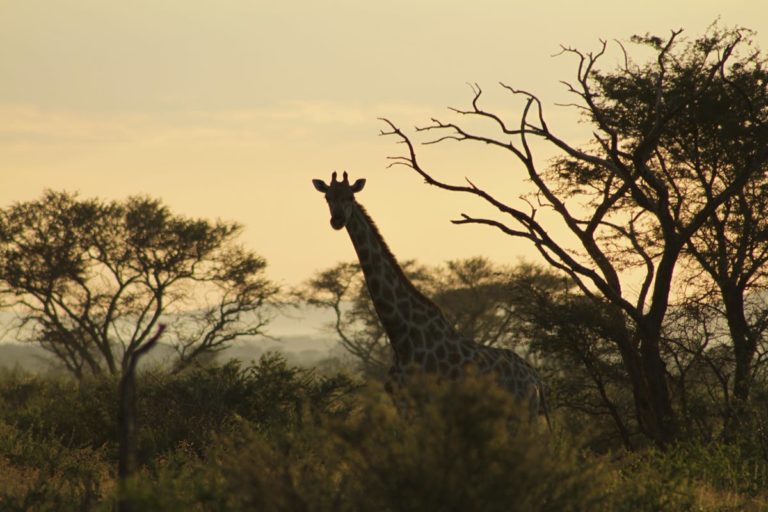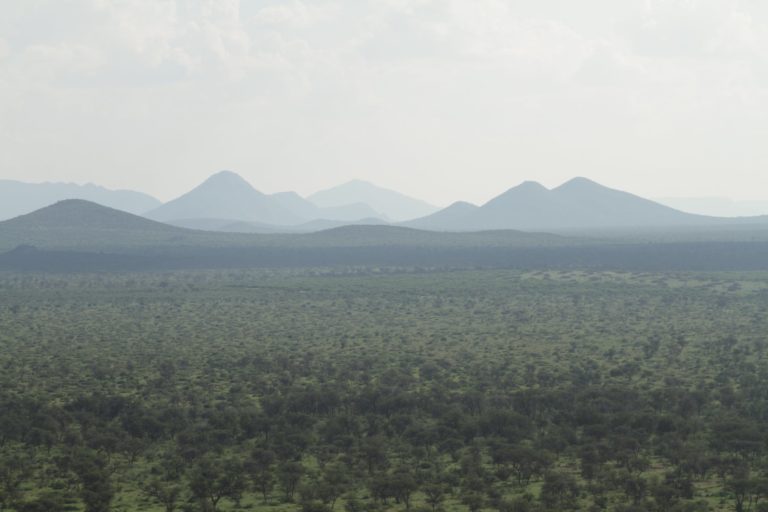Like all of our Habitas homes, conservation and community are deeply rooted in our ethos. Our home in Africa, Habitas Namibia, is a conservation project set on an impressive 50,000 hectares of nature and wildlife, including some of the most critically endangered species; black rhinos, white rhinos and pangolins. Today, one of the biggest challenges that animal conservation faces in the region is poaching. Together with our dedicated Anti-Poaching Unit, the rangers at Namibia Wildlife Protection offer our guests the opportunity to get a behind the scenes look at what goes into protecting these gentle giants with a hands-on experience unlike any other.
The day starts long before the day breaks, building a small smokeless fire for brewing a cup of strong coffee followed by breakfast to kick start the day. “Our unit consists of 13 rangers on-site, specializing in the protection of high target species like rhinos and elephants throughout Namibia.” says Salmon, Director of Namibia Wildlife Protection.
” The job requires maximum dedication; both physically and mentally demanding. Each and everyone of our rangers are hand picked through a strict recruitment and selection process. “
Once selection is passed, the candidate starts with six weeks of intensive training. Here we enable him to become one of the best in his profession and to function at the highest of standards at all times.” says Salmon.
After a hearty breakfast are morning drills; the first one known as “power hour” an intense bootcamp style group fitness exercise at base camp. As part of our immersive programming, guests are invited to train with our rangers and partake in both the physical fitness drills as well as the tracking exercises, where our rangers set out a mock poachers trail while the rest of the team has to track him down. Following morning drills, all rangers are called on parade, where instruction for the day is given.
The dedicated rangers move swiftly to their daily duties keeping a watchful eye for any unusual activity; occupying the intricate control room, vehicle and foot patrol and manning observation posts and entrances throughout the farm. Their every day tools include quad bikes, night vision equipment, tripwire alarms, aerial surveillance and a vast network of informants. Rangers use GPS to track animal movements and record other data. Along the way they actively look for poaching tools that can seriously maim or even kill animals.
“We are so lucky to have the second largest white rhino population after South Africa, but with that comes great responsibility.” says Salmon. “Rhinos are traditionally poached for their horns, elephants for their ivory and pangolins for their scales. Unfortunately both pangolin scales and rhino horns have been valued for medicinal purposes as well as seen as a status symbol in the East.”
Our biggest threat is subsistence poaching, where small and medium sized game are killed for their meat, also known as ‘bushmeat.’ Farms close to villages and tribal communities are targeted by these poachers, using methods like snares, and spears to kill animals and destroy fauna and flora in general.”
By combining cutting-edge technology and well-trained boots on the ground, Habitas Namibia and Namibia Wildlife Protection are committed to protecting endangered species in their natural habitat and engage the surrounding communities. Monthly anti-poaching and wildlife conservation courses are offered at their training facility in the Otjozondjupa Region, where local communities are given a chance to attend and learn about the benefits of their work. To stay one-step ahead of poachers and threats, the team regularly visits farmers in the region, who act as the ‘eyes and ears’ on the ground.
At Habitas, we believe giving is more rewarding than receiving, because the more we give, the more we can change the world; in this case, one endangered species at a time.

